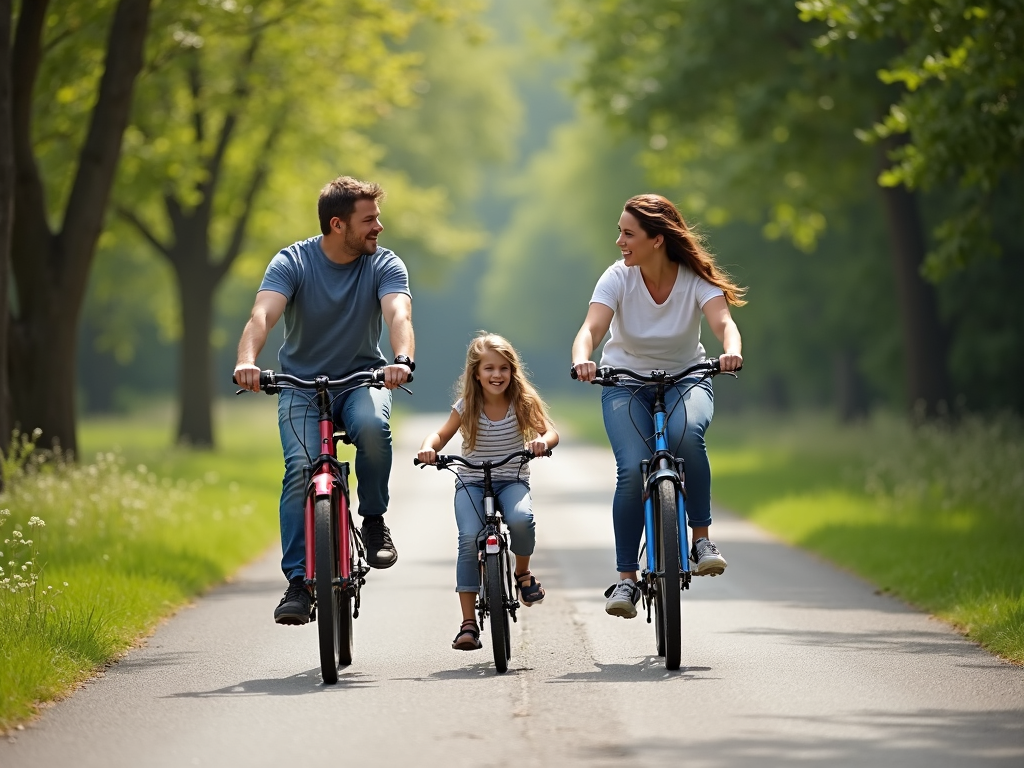Overview
Spending time outdoors is not just a fun way for kids to pass the time—it's also incredibly beneficial for their health. From boosting physical fitness to improving mental well-being, the advantages of outdoor play are numerous. In this article, we'll explore why outdoor time is so important for kids and how families can make the most of it. We'll also share some top outdoor family adventures and family fitness activities that are suitable for all ages.
Physical Health Benefits
One of the most obvious benefits of outdoor time is the physical activity it encourages. When kids are outside, they're more likely to run, jump, climb, and play games that get their hearts pumping. This kind of activity is essential for developing strong muscles and bones, improving cardiovascular health, and maintaining a healthy weight.
In fact, studies have shown that children who spend more time outdoors are less likely to be overweight or obese. For example, a study published in the International Journal of Obesity found that kids who played outside for at least an hour a day had a lower risk of obesity compared to those who spent less time outdoors.
But it's not just about preventing obesity. Outdoor play also helps kids develop better coordination and balance. Activities like riding a bike, playing tag, or climbing on playground equipment challenge their motor skills and help them become more agile.
Moreover, many outdoor activities can be effective cardio workouts that boost endurance. For instance, playing a game of soccer or going for a family hike can get kids' hearts racing and help them build stamina. These activities are not only fun but also contribute to their overall fitness.

Mental Health Benefits
Being outdoors isn't just good for the body—it's also great for the mind. Nature has a calming effect that can help reduce stress and anxiety in both kids and adults. When children spend time in natural settings, they often feel more relaxed and less overwhelmed.
Research has shown that exposure to nature can improve mood and even help with symptoms of ADHD. A study in the journal Applied Psychology: Health and Well-Being found that children with ADHD who played in green spaces showed improved attention and focus compared to those who played indoors or in built environments.
I can personally attest to this. There have been times when my own kids were feeling irritable or restless, and a simple walk in the park or a few minutes playing in the backyard made a world of difference. They came back inside calmer and happier.
Additionally, outdoor time can boost creativity and imagination. Without the constraints of four walls, kids are free to explore, invent games, and let their imaginations run wild. Whether they're building a fort out of sticks or pretending to be explorers in the jungle, the possibilities are endless.

Social Benefits
Outdoor play often involves interaction with other children, which is crucial for developing social skills. When kids play together outside, they learn to cooperate, communicate, and resolve conflicts. They also learn about taking turns, sharing, and being part of a team.
For example, at the playground, kids might negotiate who gets to use the swing next or work together to build a sandcastle. These interactions help them develop empathy and understand different perspectives.
Moreover, outdoor activities can be a great way for families to bond. Whether it's a weekend camping trip or a simple picnic in the park, spending time together outside strengthens family relationships and creates lasting memories.

Educational Benefits
The outdoors is a fantastic classroom. Kids can learn about the natural world by observing plants, animals, and insects. They can learn about weather patterns, seasons, and ecosystems. For instance, a simple nature walk can turn into a lesson about different types of leaves or the life cycle of a butterfly.
Outdoor time also encourages curiosity and exploration. Kids are naturally inquisitive, and being outside gives them the opportunity to ask questions and seek answers. Why do leaves change color? How do birds build their nests? These are the kinds of questions that can spark a lifelong love of learning.
Furthermore, many outdoor activities can be tied to academic subjects. For example, measuring the height of a tree can involve math, while writing a poem about a sunset can enhance language skills.

Family Fitness Activities for All Ages
Getting the whole family involved in outdoor activities is a great way to ensure everyone stays active and healthy. Here are some ideas for family fitness activities that are fun and suitable for all ages:
-
Hiking: Choose a trail that's appropriate for the youngest or least fit member of the family. Hiking is a great way to explore nature while getting some exercise.
-
Biking: Go for a family bike ride on a safe path or trail. It's a fun way to cover more ground and see new sights.
-
Swimming: If you have access to a pool, lake, or beach, swimming is an excellent full-body workout that's also refreshing.
-
Gardening: Planting and tending to a garden can be surprisingly physical, and it's a great way to teach kids about where food comes from.
-
Outdoor Games: Games like tag, hide-and-seek, or capture the flag can get everyone moving and laughing.
These activities not only promote physical health but also provide opportunities for quality family time.

Tips for Encouraging Outdoor Time
If your kids are used to spending a lot of time indoors, it might take some effort to get them excited about going outside. Here are some tips:
-
Make it fun: Plan activities that your kids enjoy, whether it's playing a sport, going on a treasure hunt, or having a picnic.
-
Set a good example: Show your kids that you value outdoor time by spending time outside yourself.
-
Limit screen time: Set boundaries on how much time your kids can spend on devices, and encourage them to go outside instead.
-
Create an inviting outdoor space: If you have a backyard, make it a fun place to be with things like a sandbox, swing set, or garden.
-
Explore new places: Take your kids to different parks, nature reserves, or beaches to keep things interesting.
Remember, the goal is to make outdoor time a regular part of your family's routine.

Summary
In conclusion, spending time outdoors offers a wealth of benefits for kids' health. From improving physical fitness to enhancing mental well-being, social skills, and educational opportunities, the advantages are clear. By incorporating more outdoor time into your family's routine and trying out some top outdoor family adventures, you can help your kids lead healthier, happier lives. So, lace up your shoes, grab a water bottle, and head outside—the great outdoors is waiting!
Discuss Here